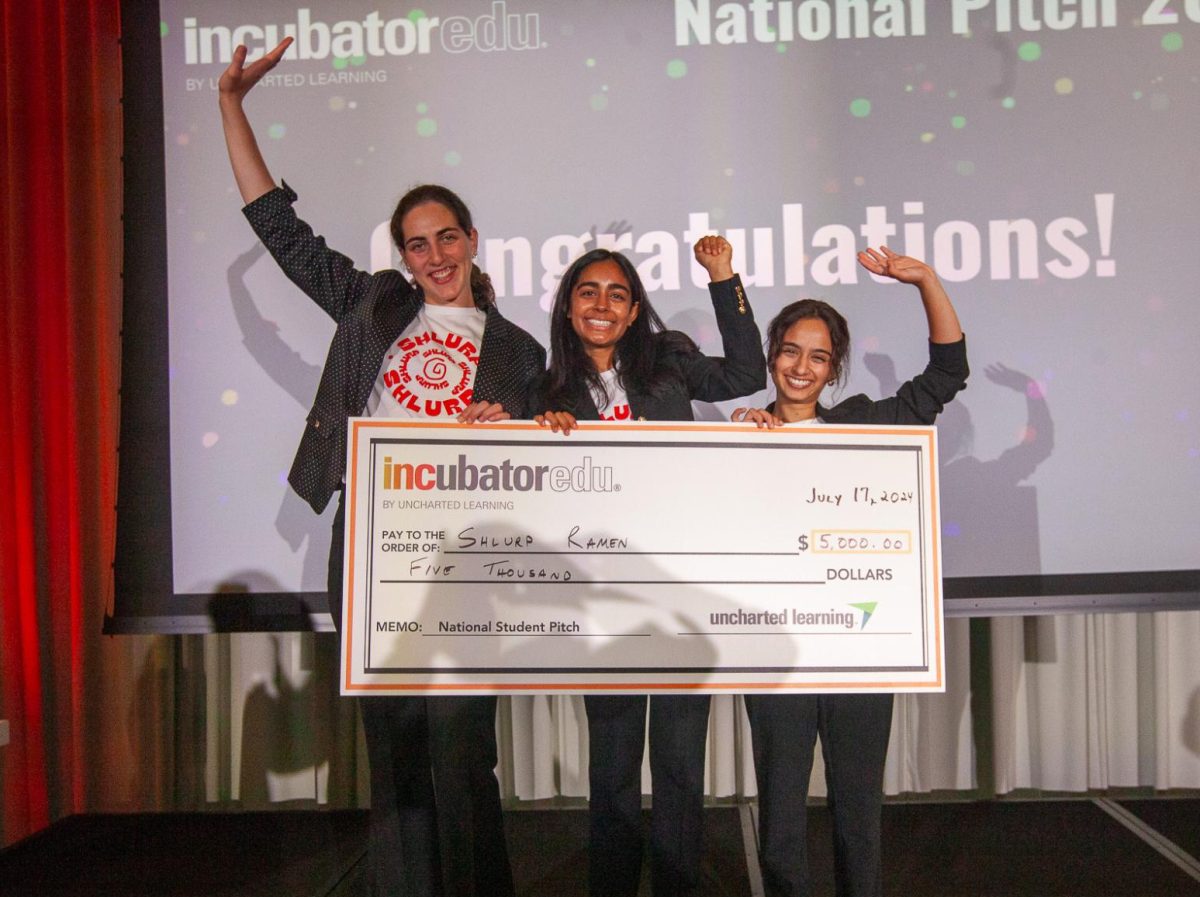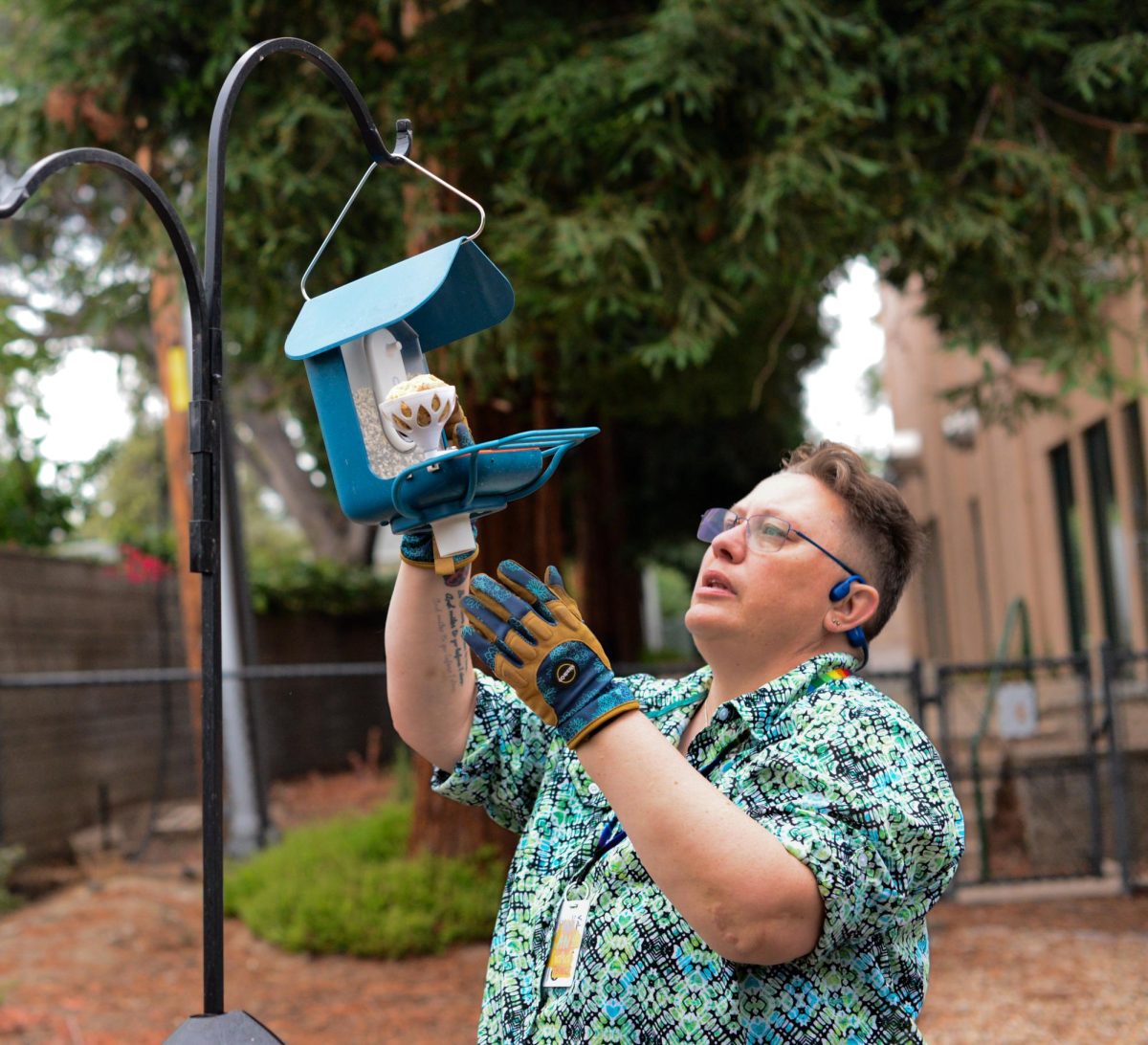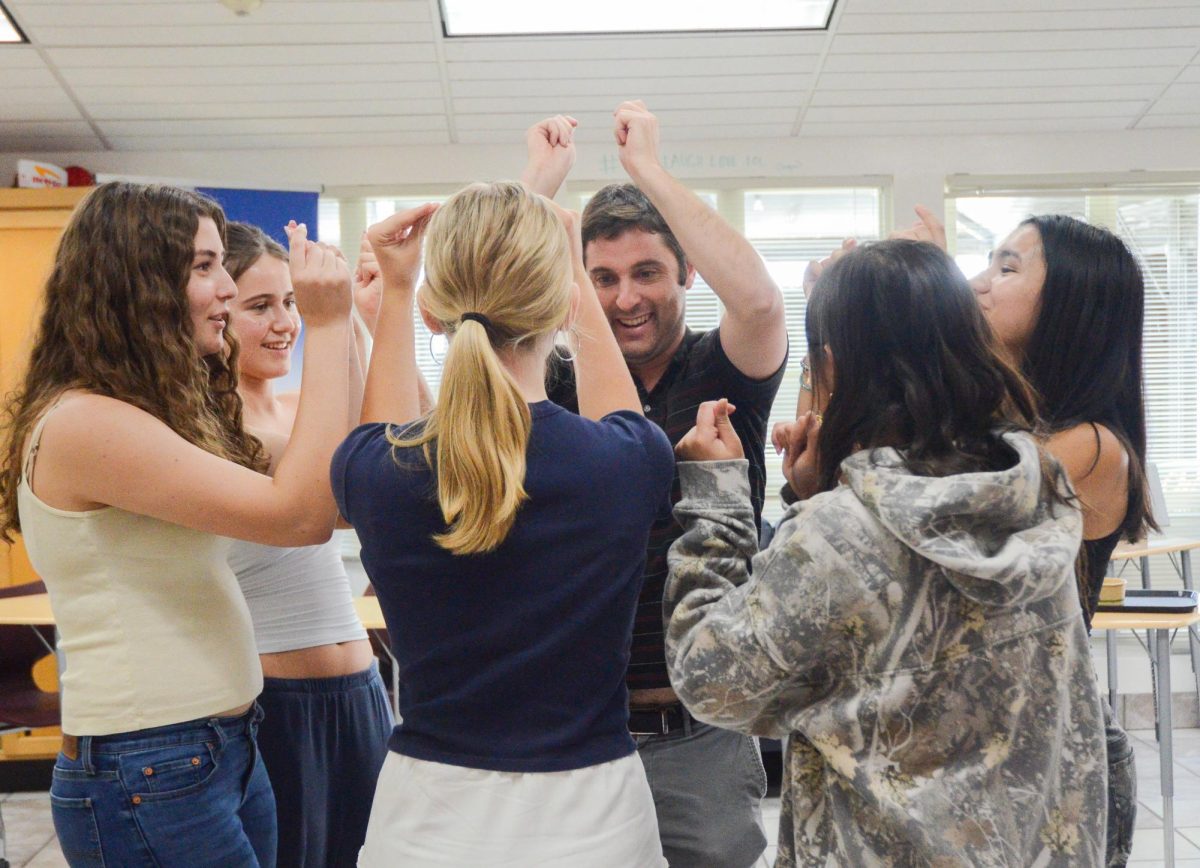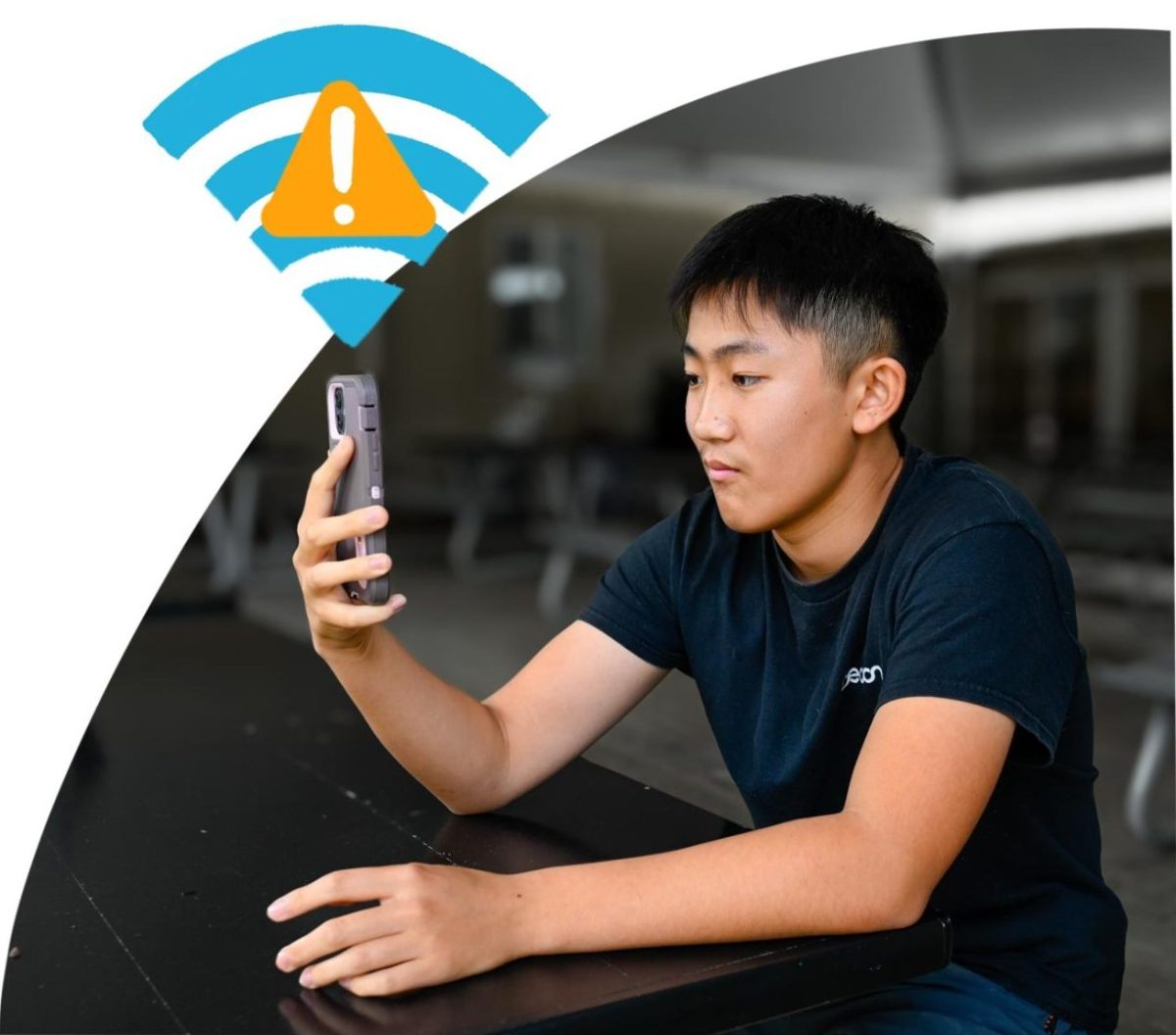Peel back the bright yellow lid. Lean into the steaming cup of instant ramen. As you savor the scent of lemongrass broth wafting toward you, your mind might jump to popular commercial ramen brands. Think again. The cup before you belongs to none other than Shlurp Ramen, Harker’s latest student-run business to hit the market.
Founders Naiya Daswani (12), Siddhi Jain (‘24) and Emily Mitnick (12) launched Shlurp as students in the Honors Entrepreneurship 1 class, an entrepreneurship class that provides students the opportunity to develop and execute their own business ideas. The founders sought to transform popular snacks like instant ramen into healthy and more inclusive options, fueled by their own experiences facing dietary restrictions.
“We brought together our own difficulties with finding foods that worked for us, and we joined forces and came up with a solution that would be accessible to so many more people than we originally envisioned it to be,” Emily said. “Through this class, we started building out the foundations of our business and exploring how far we could go, and it’s just taken off since then.”
Although the brightly-colored cups may seem picture-perfect, Shlurp endured many unique challenges on its way to fruition. To fulfill their initial goal of an alternative to instant ramen, Naiya, Siddhi and Emily purchased various raw ingredients themselves, experimenting with different combinations until they found an optimal recipe.
After they perfected their recipe, they reached out to over 70 vendors and manufacturers to jumpstart production. However, their young age and relative inexperience often spurred doubt in the factories they contacted.
“A challenge we’ve experienced is people kind of underestimating us because of our age,” Emily said. “Sometimes, when we would talk to vendors or manufacturers, and they found out that we were all 17 or just turned 18, there was a little bit of a barrier. You have to earn their trust and ensure that you are dedicated to the business and that you’re gonna work in a professional manner.”

Despite the setbacks, after months of product trials and extensive research, the first cups of Shlurp finally arrived. Naiya remarked on the gratification of seeing their hard work pay off when she first saw their product.
“It was super, super cool to see how we’d just been on the drawing board for so long, and it had all been an idea,” Naiya said. “But as soon as I held my first cup of Slurp in my hand, and I was able to eat it, it was such a surreal experience.”
Shlurp has not only made its way to customers, but also taken home a top prize of $5,000 at the INCubatoredu National Pitch Competition. After submitting a video pitch, Shlurp was one of five finalists selected from across the nation to fly to Chicago, where they pitched their company to a panel of judges in July. Although they encountered various obstacles along the way to Nationals, like supply chain issues jeopardizing the possibility of having samples for the judges, Naiya spoke to the value of learning to work effectively under pressure.
“Some of my biggest learnings have been working under pressure, learning how to negotiate with different sellers and manufacturers, but then also just learning to present myself and the product that we’ve built, whether it be to an investor or a crowd of people at the pitch competition,” Naiya said. “It gives me confidence for the future that I know now what skills I need to bring forth and what are some of the ups and downs to expect.”
Honors Entrepreneurship teacher Michael Acheatel, who mentored Emily, Siddhi and Naiya throughout the process, applauded their perseverance. Although only time will tell what Shlurp becomes in the coming years, he hopes that other students will take the initiative to address the problems they see in the world.
“If you don’t think you’re an entrepreneur or you don’t think you have an idea, I would challenge you to second guess that and put it to the test,” Acheatel said. “[Shlurp] didn’t come in with this great idea, they developed it out of nothing. The idea is not important, it’s the work ethic and it’s the commitment to solving a problem.”


















![“[Building nerf blasters] became this outlet of creativity for me that hasn't been matched by anything else. The process [of] making a build complete to your desire is such a painstakingly difficult process, but I've had to learn from [the skills needed from] soldering to proper painting. There's so many different options for everything, if you think about it, it exists. The best part is [that] if it doesn't exist, you can build it yourself," Ishaan Parate said.](https://harkeraquila.com/wp-content/uploads/2022/08/DSC_8149-900x604.jpg)




![“When I came into high school, I was ready to be a follower. But DECA was a game changer for me. It helped me overcome my fear of public speaking, and it's played such a major role in who I've become today. To be able to successfully lead a chapter of 150 students, an officer team and be one of the upperclassmen I once really admired is something I'm [really] proud of,” Anvitha Tummala ('21) said.](https://harkeraquila.com/wp-content/uploads/2021/07/Screen-Shot-2021-07-25-at-9.50.05-AM-900x594.png)







![“I think getting up in the morning and having a sense of purpose [is exciting]. I think without a certain amount of drive, life is kind of obsolete and mundane, and I think having that every single day is what makes each day unique and kind of makes life exciting,” Neymika Jain (12) said.](https://harkeraquila.com/wp-content/uploads/2017/06/Screen-Shot-2017-06-03-at-4.54.16-PM.png)








![“My slogan is ‘slow feet, don’t eat, and I’m hungry.’ You need to run fast to get where you are–you aren't going to get those championships if you aren't fast,” Angel Cervantes (12) said. “I want to do well in school on my tests and in track and win championships for my team. I live by that, [and] I can do that anywhere: in the classroom or on the field.”](https://harkeraquila.com/wp-content/uploads/2018/06/DSC5146-900x601.jpg)
![“[Volleyball has] taught me how to fall correctly, and another thing it taught is that you don’t have to be the best at something to be good at it. If you just hit the ball in a smart way, then it still scores points and you’re good at it. You could be a background player and still make a much bigger impact on the team than you would think,” Anya Gert (’20) said.](https://harkeraquila.com/wp-content/uploads/2020/06/AnnaGert_JinTuan_HoHPhotoEdited-600x900.jpeg)

![“I'm not nearly there yet, but [my confidence has] definitely been getting better since I was pretty shy and timid coming into Harker my freshman year. I know that there's a lot of people that are really confident in what they do, and I really admire them. Everyone's so driven and that has really pushed me to kind of try to find my own place in high school and be more confident,” Alyssa Huang (’20) said.](https://harkeraquila.com/wp-content/uploads/2020/06/AlyssaHuang_EmilyChen_HoHPhoto-900x749.jpeg)










